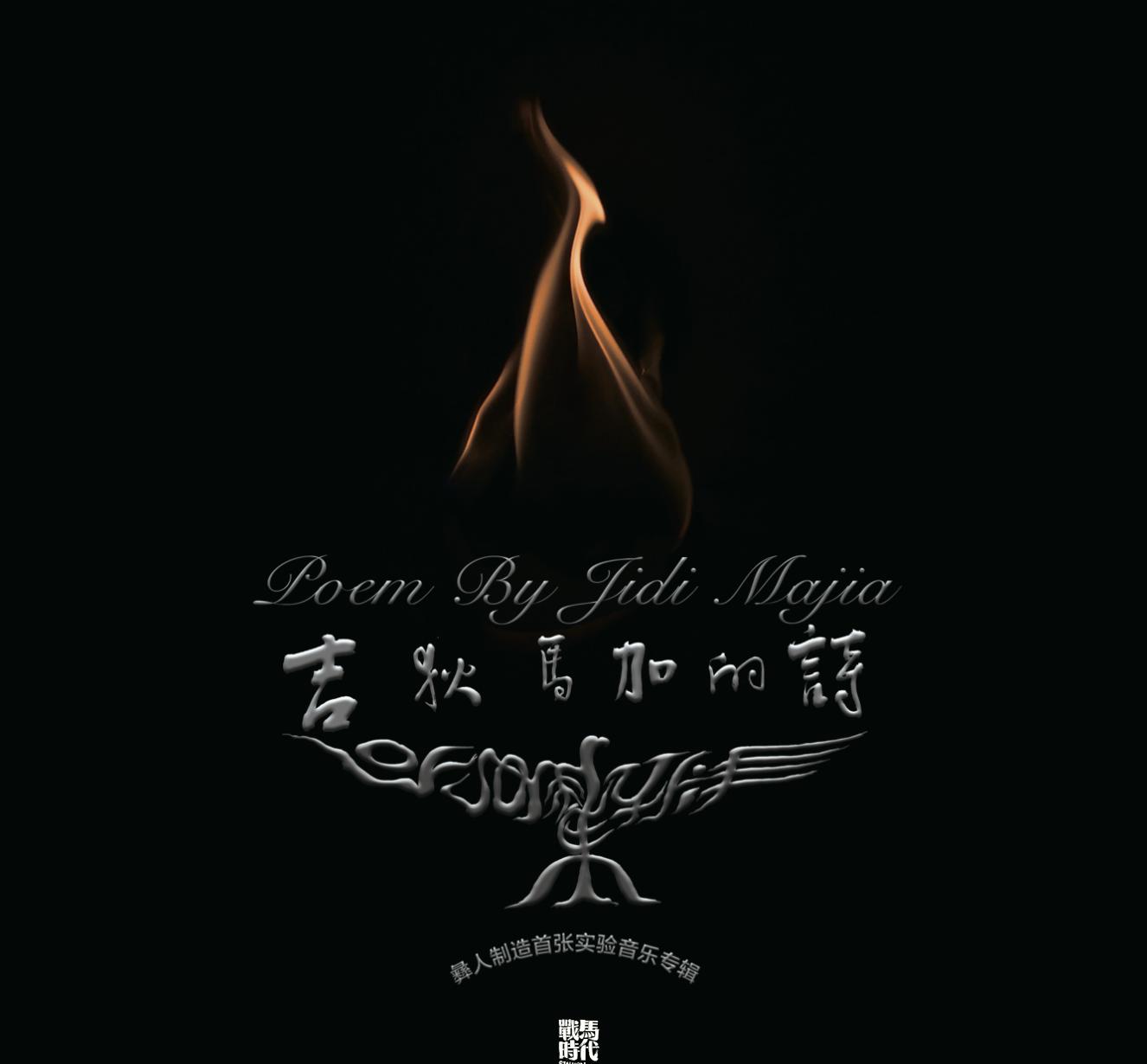The Paper's reporter Gao Dan
"The people who rushed home / But my poem did not return / Someone saw it / With golden strings / Under the eaves of the dusk crossing / Drunk / Depressed wandering / Drunk / Depressed wandering / Sheep on the slope into the circle / But my poem did not return / The bellwether saw it / When the sun went down / Looking at the bleeding hill / Weeping without tears / Alone sad ..."
This "Folk Song" is a poem by Ji Di Maga and a song from the yi people's new album "The Poems of Ji Di Ma Jia".

Album "Poems of Gidimaga"
"The Poems of Jidimaga" is the first experimental music album created by the Yi people, combining traditional ancient tunes such as Yi folk songs, chanting, and Bimo music. Yiren Manufacturing has been established for 25 years, and the production of this "Poem of Jidimaga" has also gone through ten years, the team introduced, this album is not the same as the popular style of the past, there are many new attempts, and the most prominent feature of which is that all the lyrics are adapted from the poet Jidi Maga's poems.
Ji Di Ma jia, now vice chairman of the China Writers Association, is a well-known Yi poet, and the Yi culture and traditions bring a steady stream of rich, mysterious imagery and emotional undertones to his poetry. In his poems, Guidima takes a seemingly surreal approach, connecting the worlds of the sun, stars, rivers, ancestors, and gods with the present time and space, and he also projects the overall imagination and concern for the fate of mankind and the destiny of nations into his own poetry. His poems have now been translated into nearly 40 languages.
Gidemaga
In order to present the songs in this new album, Yi Ren Manufacturing held a "'Ji Di Ma Jia's Poem' Music Poetry Sharing Meeting and Album Launch" in the main hall of Beijing Zhizhu Temple, Yi Ren Manufacturing first sang the songs "Mother", "Brother" and "Dao" that continued the previous style, and after the "disguise" in the middle, they returned in costumes with traditional Yi elements and sang songs such as "Folk Songs" and "Yi Ren" in the new album.
Poet Ji Di Majia and Yi creator Qu Bihabu, translator Dong Qiang, music producer Ye Yunchuan, and WarHorse Era founder Liu Zhao discussed music, poetry and Yi culture in the dialogue session.
"The Yi people have an old saying that poetry is the salt of our language. Language itself is already important, and poetry is the essence. In the Yi civilization, marriage and funeral have a tradition of counterpart poetry, and this kind of improvisation requires deep reserves and creativity. Jidimaga expounded on the importance of poetry to the Yi people, and at the same time, he also said: "Poetry needs to be spread through music, in fact, in the ancient period of the Yi people, poetry and song could not be separated. The earliest poets were priests who connected heaven and earth through chanting and various rituals. ”
"From the perspective of receiving literature, any kind of art will bring a lot of wonderful things to everyone in the form of its original voice, and at the same time, it has a certain contemporaneity because it is related to the spiritual source of its birth, and on the other hand, it is also benchmarked to the actual life, and it travels through time and space. The culture of the Yi people is very pure with respect for the gods and nature, and the songs made by the Yi people are also pure, their early works are expressing the singing of the environment perceived by the individual, and now it is also something nostalgic, and there is a feeling that a good time stays in their singing. Gideimaga said.
If the previous performance was "Beautiful Nostalgia", in the many songs of the new album, it was injected with more national and spiritual content, such as the following lyrics: "Who has seen the funeral of the eagle, on that cliff, or, the height of the Wanzhang Waterfall, the hammer of fate, the only ritual, sending the nail to the dome.". The Yi people manufacturing team also said: "Poetry provides us with unlimited imagination space, we are standing on the shoulders of poetry to go further, to feel the development of a nation, music adds an atmosphere, can let us realize that poetry comes from ancient times, but fashion is avant-garde." ”
Yi people also said that "The Poetry of Ji Di Maga" is also different from their past popular style, using a variety of Chinese and foreign instruments such as rattles, mouth strings, pipa, French trumpets, hand discs, etc., and there are experimental attempts in singing methods, such as adding a "rap" to the song "Yi Ren", not rap in the traditional sense, but as if whispering with air, speaking the language of the Yi people.
Guidimaga left a lot of poetry, about which poems to choose to sing, Habu said: "When choosing songs, we thought that it was not necessarily the most classic poetry, but to pay attention to the atmosphere and picture sense of poetry, and this album used some very bold singing, arranging and instrumental music, which I myself felt good." ”
The publisher of this album, War horse times, said that he hopes to bring more poetry and song power to the audience through this album in the era of the epidemic.
Editor-in-Charge: Liang Jia
Proofreader: Luan Meng